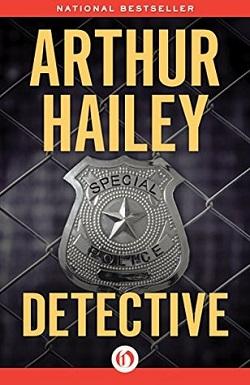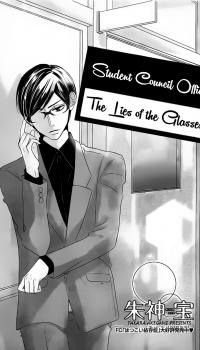Summary

Detective
by Arthur Hailey
Hours before he is due to set off on a long-delayed and much-deserved vacation with his wife and son, Det.-Sgt. Malcolm Ainslie takes a phone call he would have been better off ignoring. The caller is the chaplain at Florida State Prison, delivering a message from Elroy Doil, the serial murderer Ainslie helped put on the prison's death row. On the eve of his execution, Doil has asked to make a confession. But there is a condition: he will deliver it only in person to Ainslie.
Ainslie has no choice. Doil was convicted of a double murder, but he was suspected in ten more. No homicide detective could turn down the opportunity to close ten murder cases in a single night. What Ainslie learns from the condemned man, however, propels the ex-priest-turned-cop into an investigation that reaches into the most elite levels of his own department and the Miami city government. And it tests as never before his skills as a cop and his character as a man.
Master storyteller Arthur Hailey is legendary for the scrupulously researched authenticity and electrifying realism of his novels, for taking readers inside the places where men and women endure and sometimes crack under the pressures of jobs that shape our lives and world. Bristling with the sights, sounds, and true-to-life details of a contemporary urban homicide division, and with all the narrative suspense that has made him one of the best-selling fiction writers of our time, Detective is the novel Arthur Hailey was destined to write.
.
Read
Detective on http://kissnovel.net
Martial Peak Reviews
Arthur Hailey's Detective is a gripping exploration of morality, justice, and the complexities of human nature, set against the backdrop of a contemporary urban homicide division. The novel opens with Det.-Sgt. Malcolm Ainslie, a dedicated officer on the brink of a well-deserved vacation with his family. However, a phone call from the chaplain at Florida State Prison alters the course of his life, thrusting him back into the dark world of crime and investigation. This initial setup is not just a plot device; it serves as a catalyst for Ainslie's moral and ethical dilemmas that unfold throughout the narrative.
The central theme of Detective revolves around the quest for truth and the burdens that come with it. Ainslie's decision to meet with Elroy Doil, a serial murderer he helped convict, is fraught with tension. The reader is immediately drawn into the psychological complexities of Ainslie's character. He is portrayed as a man torn between his professional duty and personal life, embodying the struggle many face when confronted with the darker aspects of humanity. Hailey masterfully crafts Ainslie's internal conflict, making him a relatable and multi-dimensional character.
As Ainslie delves deeper into Doil's confession, the narrative expands to reveal a web of corruption that reaches into the highest echelons of the Miami city government and his own police department. This exploration of systemic issues adds a layer of social commentary to the novel, prompting readers to reflect on the nature of justice and the often-blurred lines between right and wrong. Hailey's meticulous research shines through in these moments, as he paints a vivid picture of the pressures and moral ambiguities faced by law enforcement officers.
Character development is another strong suit of Detective. Ainslie is not the only character who undergoes significant growth; the supporting cast, including fellow officers and city officials, are equally well-developed. Each character brings their own perspectives and motivations to the table, enriching the narrative and providing a broader context for Ainslie's journey. The interactions between characters are authentic and often fraught with tension, reflecting the high-stakes environment of a homicide division. Hailey's ability to create realistic dialogue and relationships adds depth to the story, making the reader invested in the characters' fates.
The pacing of the novel is expertly handled, with Hailey balancing moments of intense action with quieter, introspective scenes. This rhythm keeps readers engaged while allowing them to digest the moral complexities presented. The suspense builds steadily as Ainslie uncovers more about Doil's confession and the implications it has for his own life and career. Hailey's skillful use of cliffhangers and unexpected twists ensures that the reader is kept on the edge of their seat, eager to uncover the truth alongside Ainslie.
Moreover, Hailey's vivid descriptions of the Miami setting serve as a character in its own right. The sights and sounds of the city are intricately woven into the narrative, creating an immersive experience for the reader. This attention to detail enhances the realism of the story, grounding the more sensational aspects of the plot in a believable context. The urban landscape becomes a reflection of the chaos and complexity of the human experience, mirroring Ainslie's internal struggles.
In comparison to other works in the crime fiction genre, Detective stands out for its focus on the psychological and moral dimensions of crime-solving. While authors like Michael Connelly and Patricia Cornwell often emphasize forensic details and procedural accuracy, Hailey's approach is more character-driven. He delves into the emotional toll that crime takes on those who investigate it, offering a nuanced perspective that resonates with readers on a deeper level.
The novel also raises important questions about the nature of redemption and forgiveness. As Ainslie grapples with the implications of Doil's confession, he is forced to confront his own beliefs about justice and morality. This exploration of faith and doubt is particularly poignant, given Ainslie's background as an ex-priest. Hailey's treatment of these themes adds a layer of philosophical depth to the narrative, inviting readers to reflect on their own values and beliefs.
Ultimately, Detective is a powerful examination of the human condition, set against the backdrop of a gripping crime story. Hailey's ability to weave together complex characters, moral dilemmas, and a suspenseful plot makes this novel a compelling read. It challenges readers to consider the nature of justice and the sacrifices made in its pursuit, leaving a lasting impact long after the final page is turned.
In conclusion, Arthur Hailey's Detective is a masterclass in storytelling that transcends the typical boundaries of the crime fiction genre. With its rich character development, thought-provoking themes, and electrifying realism, it is a novel that will resonate with readers who appreciate depth and complexity in their literary experiences. Whether you are a fan of crime fiction or simply looking for a captivating read, Detective is a book that should not be missed.
























Reviews 0
Post a Reviews: